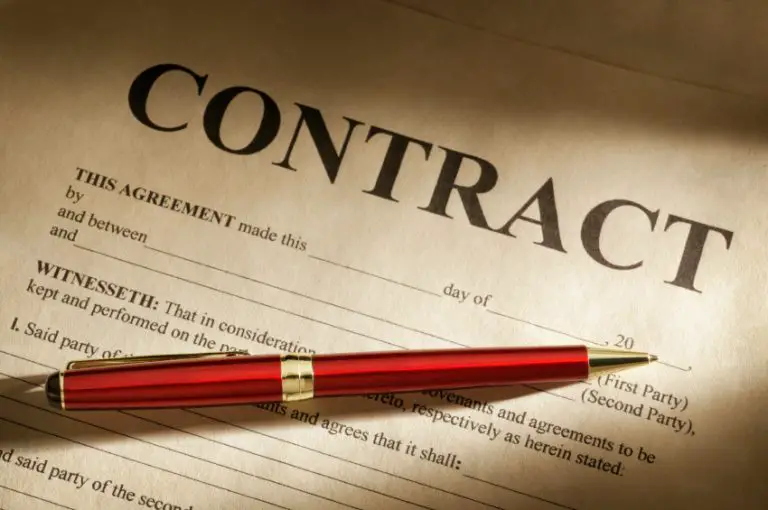Introduction
Contracts are a vital component of any business. They define the terms of agreements between parties, provide legal protection, and ensure that everyone involved understands their rights and obligations. However, contract drafting can be a complex and challenging process, especially for small business owners without legal training.
Effective contract drafting is essential to avoid legal pitfalls and ensure that all parties involved understand the terms of the agreement. A poorly drafted contract can lead to misunderstandings, disputes, and even legal action.
In This blog we will discuss common legal pitfalls in contract drafting and provide key considerations and best practices to help you avoid them. By the end of this blog, you'll have a better understanding of how to draft effective contracts that protect your business and avoid legal complications.
Common legal pitfalls in contract drafting
- Ambiguity and vagueness
One of the most common legal pitfalls in contract drafting is using language that is ambiguous or vague. Unclear language can lead to misunderstandings and disputes between parties. To avoid this, it's essential to use clear and concise language and define key terms and concepts.
- Lack of clarity in payment terms
Another common pitfall is a lack of clarity in payment terms. Payment terms should be clearly defined, including the amount, frequency, and method of payment. Failure to specify payment terms can lead to misunderstandings and disputes.
- Failure to specify termination conditions
Contracts should also include termination conditions, including notice requirements, conditions for termination, and consequences of termination. Failure to specify termination conditions can lead to disputes and legal action.
- Failure to include appropriate dispute resolution mechanisms
Finally, contracts should specify dispute resolution mechanisms, including arbitration or mediation, to avoid costly and time-consuming legal battles. Failure to include these mechanisms can leave parties with limited options for resolving disputes.
By being aware of these common legal pitfalls, you can take steps to avoid them and draft effective contracts that protect your business and minimize legal complications.
Key considerations for effective contract drafting
- Use clear and concise language
Using clear and concise language is essential to ensure that all parties understand the terms of the agreement. Avoid using complex legal jargon and use language that is easily understood by everyone involved.
- Define key terms and concepts
Define key terms and concepts in the contract to avoid misunderstandings. This can include defining technical terms or industry-specific language that may not be commonly understood.
- Be specific about payment terms and conditions
Specify payment terms and conditions clearly, including the amount, frequency, and method of payment. You may also want to include late payment fees and consequences for non-payment.
- Include termination and renewal clauses
Include termination and renewal clauses that specify the notice requirements, conditions for termination, and consequences of termination. These clauses help prevent misunderstandings and provide a clear process for ending or renewing the agreement.
- Specify dispute resolution mechanisms
Specify dispute resolution mechanisms, including arbitration or mediation, to provide a clear process for resolving disputes. Including these mechanisms can save time and money by avoiding costly legal battles.
- Address potential risks and liabilities
Address potential risks and liabilities in the contract, including warranties, indemnification clauses, and limitations of liability. By addressing potential risks and liabilities, you can minimize legal complications and protect your business.
By considering these key factors when drafting a contract, you can create effective and legally sound agreements that protect your business and minimize legal risks.
Best practices for contract drafting
- Understand the legal requirements
Before drafting a contract, it's essential to understand the legal requirements that apply to your business and the specific agreement. This may include local, state, or federal laws, as well as industry-specific regulations.
- Use templates and examples
Using templates and examples can be helpful in creating effective contracts. Templates and examples can provide guidance on the structure, language, and key terms of the contract.
- Consult with legal professionals
If you're unsure about the legal requirements or language in a contract, it's always best to consult with legal professionals. A lawyer can review the contract and provide advice on potential risks and liabilities.
- Review and revise the contract
Review and revise the contract carefully before finalizing it. Make sure all terms are clearly defined, and there are no ambiguities or vague language. If necessary, revise the contract to address any potential legal issues.
- Keep accurate records
Keeping accurate records of all contracts and agreements is essential for legal compliance and risk management. Make sure to keep copies of all contracts and agreements, as well as any correspondence or documentation related to the agreement.
By following these best practices, you can create effective contracts that protect your business and minimize legal risks. Remember that contract drafting is a complex process, and it's important to take the time to carefully consider all key factors before finalizing the agreement.
Conclusion
In conclusion, taking the time to carefully draft effective contracts is a valuable investment in the long-term success and security of your business. By avoiding legal pitfalls and creating agreements that provide clear terms and protections, you can mitigate risks and focus on growing your business with confidence.
Remember that contract drafting is a complex process that requires careful consideration of all key factors. It's always best to consult with legal professionals to ensure that your contracts are legally sound and compliant with all relevant laws and regulations.






